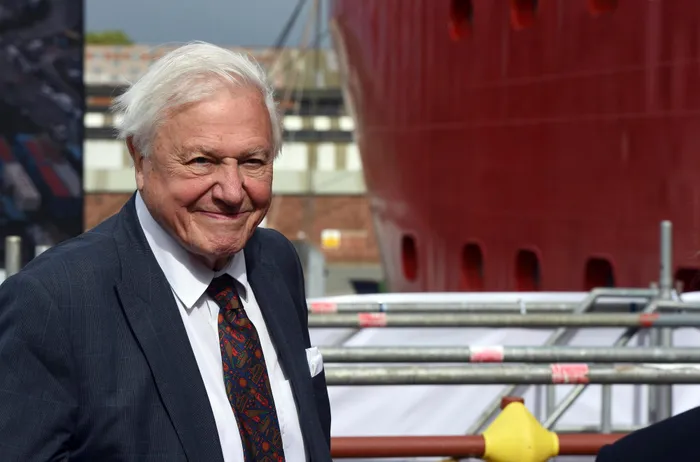Sir David Attenborough turns 99 and urges the world to save our oceans

At 99, David Attenborough launches 'Ocean' documentary to save our seas.
Image: Asadour Guzelian/AP
As Sir David Attenborough celebrates his 99th birthday, the renowned naturalist marks the occasion not with reflection, but with action, launching what he considers one of the most important films of his long and influential career.
The new cinema-length documentary “Ocean” explores the critical role the seas play in sustaining life on Earth and highlights their current state of peril.
For Attenborough, the message is clear: if humanity hopes to combat climate change and protect biodiversity, the battle must begin beneath the waves.
"After almost 100 years on the planet, I now understand the most important place on Earth is not on land, but at sea," he says.
His words frame a film that blends decades of experience with a fresh urgency, documenting both the devastation and the resilience of our marine ecosystems.
Premiered at London’s Royal Festival Hall with King Charles III in attendance, “Ocean” brings into sharp focus the damage caused by industrial fishing, especially bottom trawling—a practice still permitted and, in many places, subsidised.
Footage in the film reveals how heavy chains dragged along the seabed destroy habitats, release carbon dioxide, and discard up to 75% of unintended catch.
Attenborough describes the method as "a wasteful way to catch fish", and warns that unless practices change, the oceans' ability to support life, including our own, will diminish rapidly.
Yet “Ocean” is not a tale of despair. The film also chronicles remarkable recoveries, offering a message of hope.
The near-extinction and subsequent rebound of the world’s whale populations stands as a key example. In the 20th century alone, nearly three million whales were killed.
Species like the Blue Whale were reduced to just one percent of their population. Attenborough recalls believing they would never return.
But public outcry led to a global ban on commercial whaling in 1986, and since then, whale numbers have steadily increased. Scientists now say this revival shows how the ocean can recover more quickly than previously imagined—if given the chance.
This optimism threads through the film, and Attenborough’s voice reminds viewers that the world’s leaders have already committed to protecting a third of the oceans.
With a UN conference on the horizon, he hopes “Ocean” will galvanise action to honour that promise.
Keith Scholey, one of the film’s directors and a long-time collaborator of Attenborough’s, reflects on his enduring drive and energy. Even at 99, Attenborough remains a force, both creatively and in his mission to awaken global awareness.
The documentary’s closing message is one of cautious optimism. A healthy ocean not only supports marine life but also helps lock away carbon dioxide, a critical factor in the fight against global warming.
IOL News
Get your news on the go, click here to join the IOL News WhatsApp channel.
Related Topics: